Benjamin’s Stash
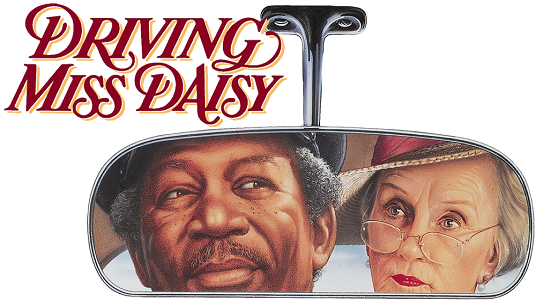
Worst backseat driver ever!
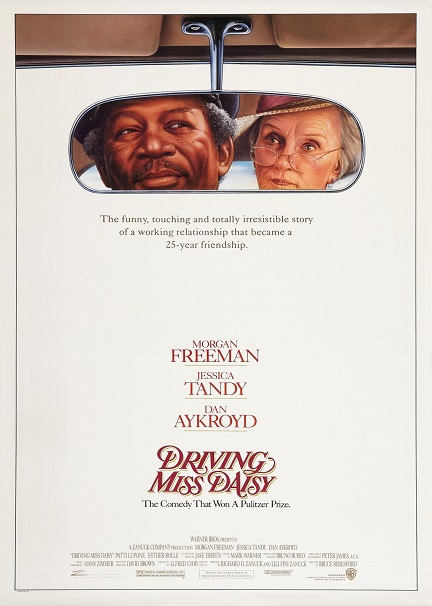
Cast of Characters:
Hoke Colburn – Morgan Freeman
Daisy Werthan – Jessica Tandy
Boolie Werthan – Dan Aykroyd
Florine Werthan – Patti LuPone
Idella – Esther Rolle
Director – Bruce Beresford
Writer – Alfred Uhry
Based on the play Driving Miss Daisy by Alfred Uhry
Producer – Richard D. Zanuck & Lili Fini Zanuck
Distributor – Warner Bros. Pictures
Running Time – 99 minutes
Rated PG
In 1948, Daisy Werthan (Jessica Tandy) is a 72-year-old wealthy, Jewish, widowed, retired school teacher who lives in Atlanta, Georgia. Except for her housemaid Idella (Esther Rolle), she lives all alone, which worries her soon Boolie (Dan Aykroyd) after she wrecks her car trying to back out of her driveway. Following that accident, Boolie puts his foot down and hires Hoke Colburn (Morgan Freeman) to serve as her chauffeur.
At first, Daisy resents the idea of being chauffeured around by Hoke, and Boolie even warns him that his mother is a little “high-strung”, but over the course of time, the two strong-willed people gradually learn to accept one another.
Well, isn’t that just precious.
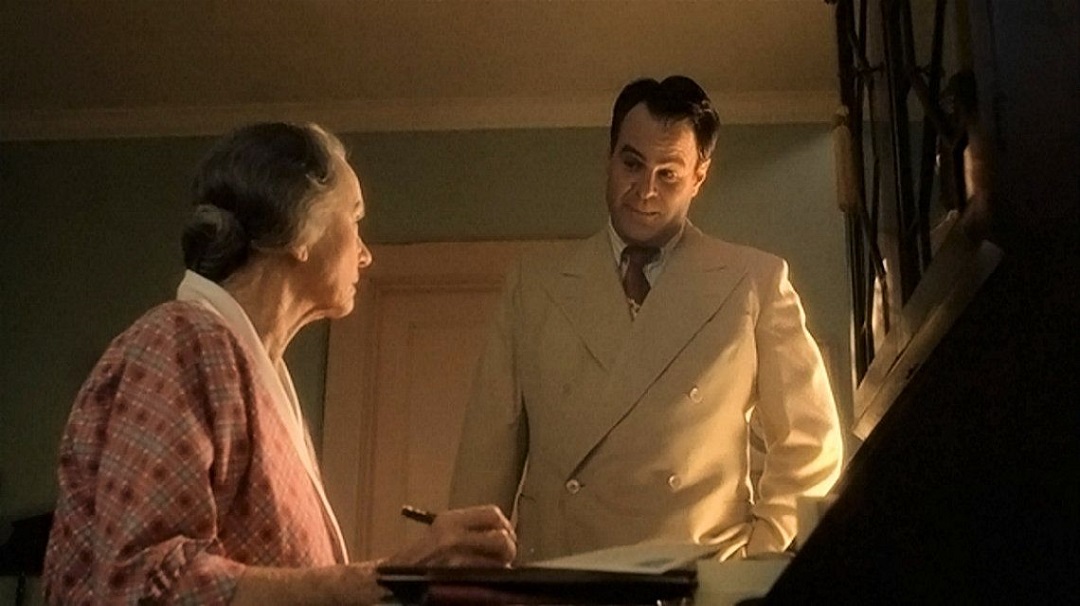
Based on Alfred Uhry’s play of the same name (Uhry also wrote the screenplay, for which he’d win the Oscar for Best Adapted Screenplay), Driving Miss Daisy isn’t in any way like the sweeping epics we’ve seen storm the Oscars and claim the top prive – Gone with the Wind, Casablanca, Ben-Hur, The Godfather, The Lord of the Rings: The Return of the King, etc. No, far from it, Driving Miss Daisy is a much smaller film, though by no means small in regard to the story’s time span. Wearing its heart on its sleeve, and as predictable as the sun rising in the east, this is a film that bears no shame in embracing the fact that its cinematic comfort food, yet it’s so pleasantly paced and beautifully acted that it rises above being the schmaltzy slice of cringe-inducing quaintness it could’ve been.
Just imagine what a Nicholas Sparks version would look like.
Which one would get cancer?
It’s unfortunate that for whatever reason, this film has garnered a strong disliking from some over the years, though even back when it was first released, many people were critical of Morgan Freeman’s portrayal of Hoke Colburn. I’m sure his “yessir”, “yes, ma’am” uppity attitude was like nails on a chalkboard to the much more open-minded Spike Lee, who spoke ill of this film back when it first came out and continues to do so this very day. Perhaps it’s not so much the portrayal of Hoke as it is the fact that Driving Miss Daisy took home four Oscars, including Best Picture, and his film, Do the Right Thing, went home empty handed.
In fairness, Do the Right Thing is the better film, but Lee’s criticisms, among others, seem to be completely ignorant of the fact that Driving Miss Daisy is supposed to be a reflection of the story’s time and place – 1940-60’s segregated Georgia. I guess such baseless accusations are expected, though, when your head’s been up your ass that long.
Seriously, Spike, I love your movies, but sometimes – oh. my. God. just shut the hell up. Isn’t there another Quentin Tarantino movie out there you can complain about?
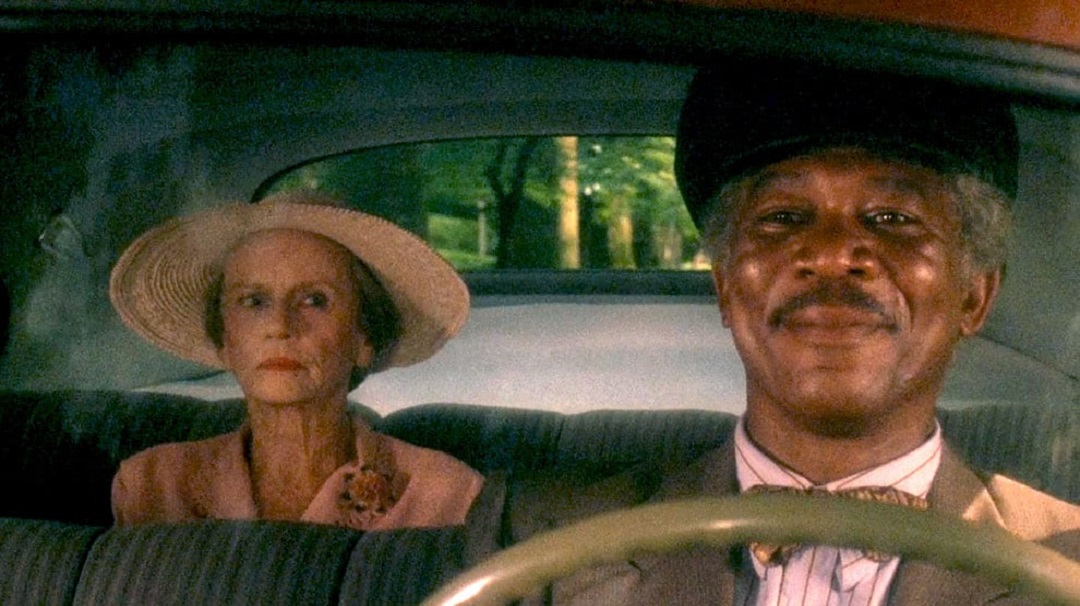
Three of Australian director Bruce Beresford’s best films have taken place in the American South. Driving Miss Daisy is one of them; the other two are Tender Mercies and Crimes of the Heart. While not one you’d call a “director’s director”, it’s undeniable that Beresford’s sensibilities fit the region like a glove, and with Driving Miss Daisy, he walks a fine line between genuine sentiment and nauseating schmaltz with nary a misstep. With a gracefully understated touch, Beresford takes his viewers on a journey through an unlikely, yet ultimately touching relationship that grows with such patience from the very first moment our two central characters meet and stubbornly butt heads to the sweet and tender moment shared by them in the film’s closing scene.
And that there is what seems to fly over the heads of this film’s detractors. All the complaints levied at Driving Miss Daisy taking a flippant view toward racism or a quaint, glamorized portrait of the past are completely missing the point. Uhry’s story isn’t necessarily about racism, unlike Spike Lee’s aforementioned Do the Right Thing, which is an uncompromising examination of racial tensions in Brooklyn, New York or the very appropriately comparable Green Book, which is also overtly about race (and, like Driving Miss Daisy, would go on to win Best Picture). Instead, the focus of this film is the relationship that develops between Hoke and Daisy. For sure, race plays a part in that development, as do other distinctions between them such as religion and class, and though it’s approach to racism may be softer than other films that explore such subject matter, the film isn’t afraid to shine a spotlight on the era’s problems. Hoke is often the victim of racial prejudice, of which Daisy, a Jewish woman herself, is oblivious to even when things hit close to home for her after her synagogue is bombed. However, the film is more about the bond that gradually grows between the two as they look past what may divide them and learn to see each other for who they truly are.
Annnnd cue the “More You Know” star now.
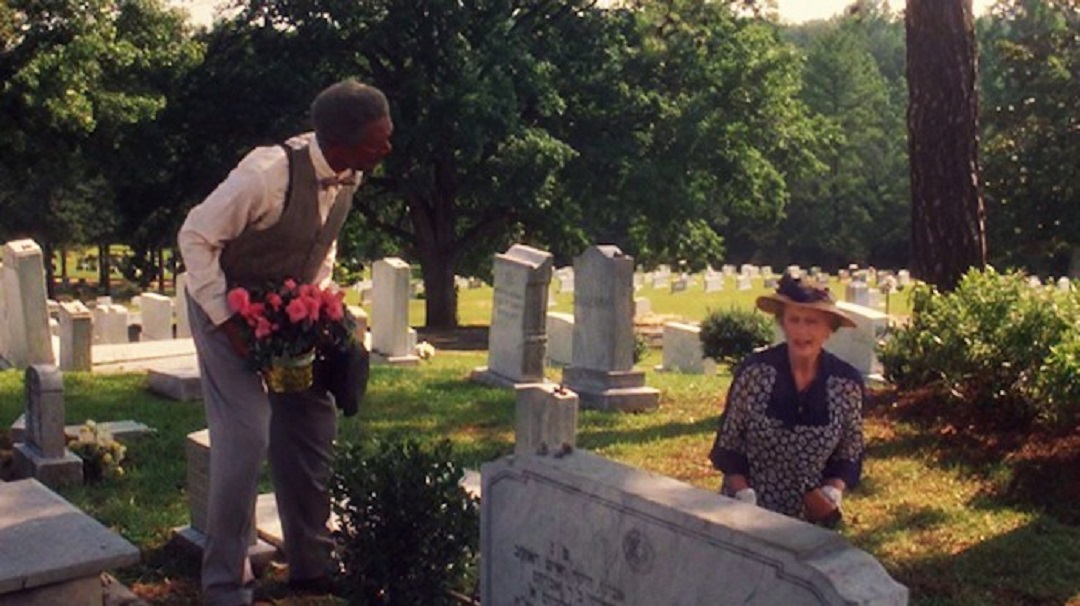
Undoubtedly, the film’s standout strength is its cast, led by two excellent lead performances from Jessica Tandy and Morgan Freeman, the former a stage star whose resume dated all the way back to the ’30s and the latter an actor whose career was just getting warmed up. Beresford and Uhry certainly deserve their due, but the heart and soul of Driving Miss Daisy belongs to its two stars.
Both Freeman and Tandy provide great care in turning Uhry’s characters into fully realized human beings. There’s more to Hoke than just the stereotypical “kindly old negro”, and likewise, Daisy is more than just the crotchety, old Southern dame. She’s prickly and prideful, yet over the course of the film, as layers are peeled back, we begin to see that hard surface of hers may be serving only as a shield for a vulnerable, lonelier side hiding within her. As Daisy ages a quarter-century, Tandy’s required to handle a wide range of emotions and personality changes, and the veteran actress’s performance is nothing short of note-perfect, one that would go on to win her the Academy Award for Best Actress.
Driving Miss Daisy wasn’t Morgan Freeman’s breakthrough; in fact, his frightening performance as Fast Black in the criminally underrated Street Smart had already earned him an Oscar nomination for Best Supporting Actor. From there, Freeman had roles as the bullheaded principal in Lean on Me, Michael Keaton’s addiction counselor in Clean and Sober (another criminally underrated gem), and the gravedigger John Rawlins in Glory. It was this film, though, that finally made him a bona fide movie star.
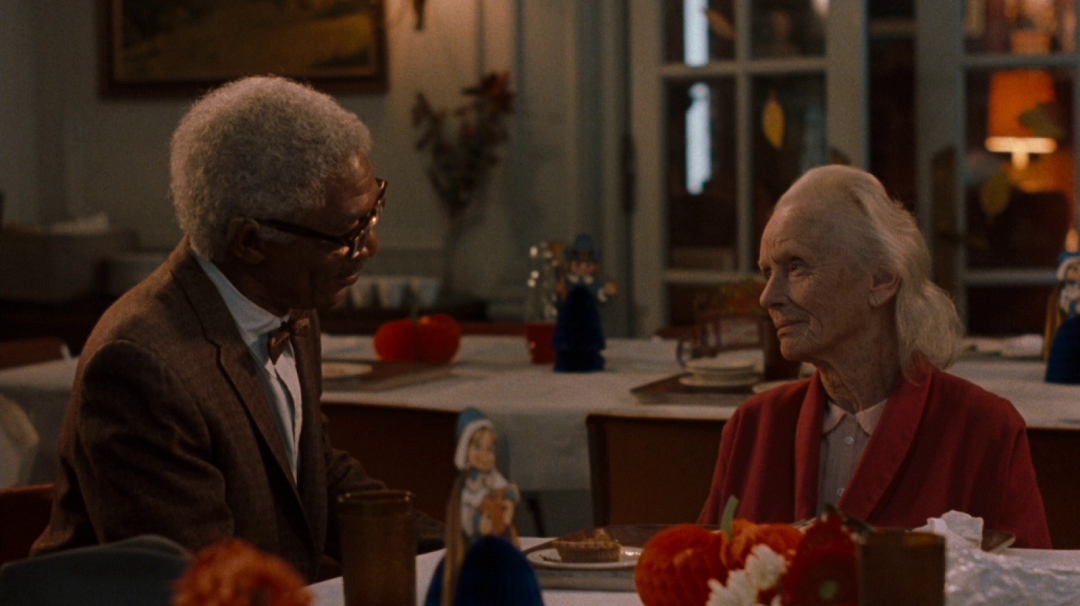
As Hoke, Freeman turns in one of the finest performances of his distinguished career, transcending the subservient “shuck and jive” caricature critics of this film see him as. He’s gentle and has the patience of a saint, but also carries with him a witty sense of humor and the confidence to call out Daisy on her ignorance when she seems unable to make any connection between the prejudiced attacks they both receive. This is most notable during a scene where Daisy prides herself on attending an MLK speech, yet can’t understand why Hoke would be understandably upset when she doesn’t extend an invite to him after her son has to bow out and suggests she take him.
With all the attention Tandy and Freeman deservedly receive, it’s easy to forget just how good Dan Aykroyd is as Daisy’s son Boolie, a performance that would earn him his first and only Oscar nod for Best Supporting Actor. Given his work in mainly comedy – Saturday Night Live, The Blues Brothers, Trading Places, Ghostbusters – Aykroyd might seem like a suprising casting choice to some (at the time, at least, as he’d follow this with strong dramatic turns in My Girl and Get on Up), but the natural born Canadian is all charm here and pulls off a wonderfully effective Southern cadence that helps him slip right into the role.
Driving Miss Daisy may not seem like much compared to other, grander Best Picture winners, but Bruce Beresford and Alfred Uhry have crafted a simple yet heartfelt picture that nicely balances its genuine sweetness with sharp wit. On top of that, and the main reason this film doesn’t flounder in a giant pool of saccharine mush, you have two terrific showcase performances from Jessica Tandy and Morgan Freeman – the crowning achievement of one star and the emergence of another.
Stash Tier: Platinum Stash
